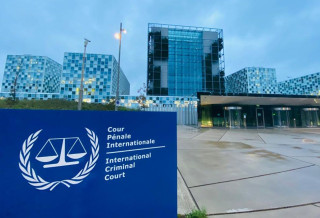Legal Blog
What is a war crime?
What is a war crime?
War crimes are "grave breaches" of international laws designed to hold individuals criminally responsible for actions that take place during an armed conflict.
A set of treaties referred to as the Geneva Conventions stem from a series of conventions in Hague that began defining acts prohibited in wartime. The most important of these conventions took place in 1899, 1907, and again in 1949. While the Geneva Conventions contain much of what we consider war crimes today, there are a number of other international treaties and international customary laws that have been adopted by a substantial part of the international community over the years that broaden the definition of war crimes. The Geneva Convention of 1949 stands out among all these treaties, however, because it brought together treaties of past conventions and was ratified by all the member states of the United Nations.
What are war crimes, generally?- War crimes generally fall into one of the following categories:
- Crimes against civilians in areas of armed conflict
- Crimes against persons providing humanitarian aid or peacekeeping
- Crimes against property rights (confiscation of private property)
- Prohibited methods of warfare; (terror, causing superfluous and unnecessary injury)
- Prohibited means of warfare (chemical and biological weapons, weapons that strike civilians and combatants indiscriminately)
The International Criminal Court in the Hague prosecutes war crimes. The ICC works closely with the United Nations but is not a part of the UN. War crimes can also be prosecuted through an international war crimes tribunal or a tribunal set up through a formal group of nations such as Nato.
What are examples of war crimes?- Murder, willful killing not justified by military necessity
- Deliberately attacking civilians and non-military targets
- Targeting hospitals or other areas where the sick and wounded have gathered
- Torture
- Inhumane treatment
- Rape, forced prostitution
- Biological experiments
- Biological Weapons
- Chemical Weapons
- Willfully causing great suffering
- Forcing someone to serve in another military
- Taking hostages
- Intentionally directing attacks against the civilian population
- Intentionally directing attacks against non-military objectives
- Intentionally directing attacks against humanitarian assistance or peacekeeping mission
- Poison, poisonous gasses, or poisoned weapons;
- Killing combatants who have surrendered
- Intentionally using starvation of civilians as a method of warfare
- Aggression – An act of aggression means "the use of armed force by a state against the sovereignty, territorial integrity or political independence of another State" and can include invasion, occupation, and annexation by the use of force, as well as the blockade of ports.
The United Kingdom and 37 other countries have made a referral to the ICC for the attacks in Ukraine. This is the largest referral made in the history of the ICC. The referral – considered a "state party referral" allows the prosecution to move forward with an investigation without judicial approval.
The basis of the referral was the indiscriminate targeting of civilians in Ukraine. The court's chief prosecutor, Karim Khan, said the investigation would include any offenses that have occurred during Russia's full-scale invasion into Ukraine.
While Ukraine is not an ICC member, it accepted ICC jurisdiction in 2013 after Russia's invasion and annexation of Ukraine's Crimea peninsula. Russia does not recognize the jurisdiction of the ICC and cannot be expected to voluntarily hand someone over for prosecution. In order for a Russian to become subject to prosecution, the alleged war criminal would have to be apprehended and brought to an international court based on evidence directly linking the individual to specific war crimes.
The ICC does not have the ability to make arrests. The alleged war criminal has to be brought to the court by a member state.
What if the alleged war criminal was just following orders?The Nuremberg defense is not a defense as to culpability. In other words, it is not a defense that a suspected war criminal was simply carrying out the orders of a more senior officer. This defense may be used as mitigation, however, and can be considered in reducing the punishment for the crime.
Can Vladmir Putin be prosecuted for a war crime?The ICC prosecutes individuals. To prosecute a particular individual, there has to be evidence tying a particular crime to a particular person. Vladamir Putin could be prosecuted under a legal doctrine called "command responsibility." Under this doctrine, a commander who orders a crime – knows of a crime or is in a position to know of a crime – and did nothing to prevent those crimes – can be held responsible.
Independent of the ICC, the United States and 44 other nations have begun an investigation into possible war crimes after the United Nations Human Rights Council resolved to establish a commission of inquiry.
Certain charges (such as aggression) can only be prosecuted after a referral from the United Nations Security Council.



Comments